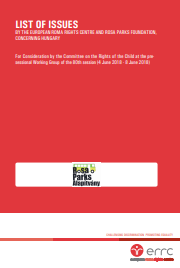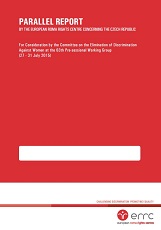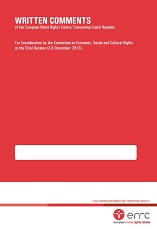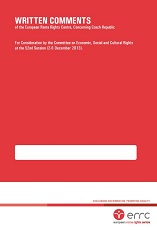
LIST OF ISSUES BY THE EUROPEAN ROMA RIGHTS CENTRE AND ROSA PARKS FOUNDATION, CONCERNING HUNGARY (For Consideration by the Committee on the Rights of the Child at the pre-sessional Working Group of the 80th session 4 June 2018 - 8 June 2018)
LIST OF ISSUES BY THE EUROPEAN ROMA RIGHTS CENTRE AND ROSA PARKS FOUNDATION, CONCERNING HUNGARY (For Consideration by the Committee on the Rights of the Child at the pre-sessional Working Group of the 80th session 4 June 2018 - 8 June 2018)
Keywords: Hungary; human rights; Roma rights; stat care: education; segregation; trafficking; Romani children; violence; family;
The European Roma Rights Centre (hereinafter also referred to as the “ERRC”) and the Rosa Parks Foundation (hereinafter referred to as the RPF)2 hereby submit this list of issues concerning Hungary to the United Nations Committee on the Rights of the Child (hereinafter also referred to as “Committee”) for the consideration of the Committee on the pre-session of the Working Group prior to reporting. The submission focuses on the situation of Romani children in Hungary, in particular on their overrepresentation in state care, segregation in education, and their vulnerability to trafficking.
More...


